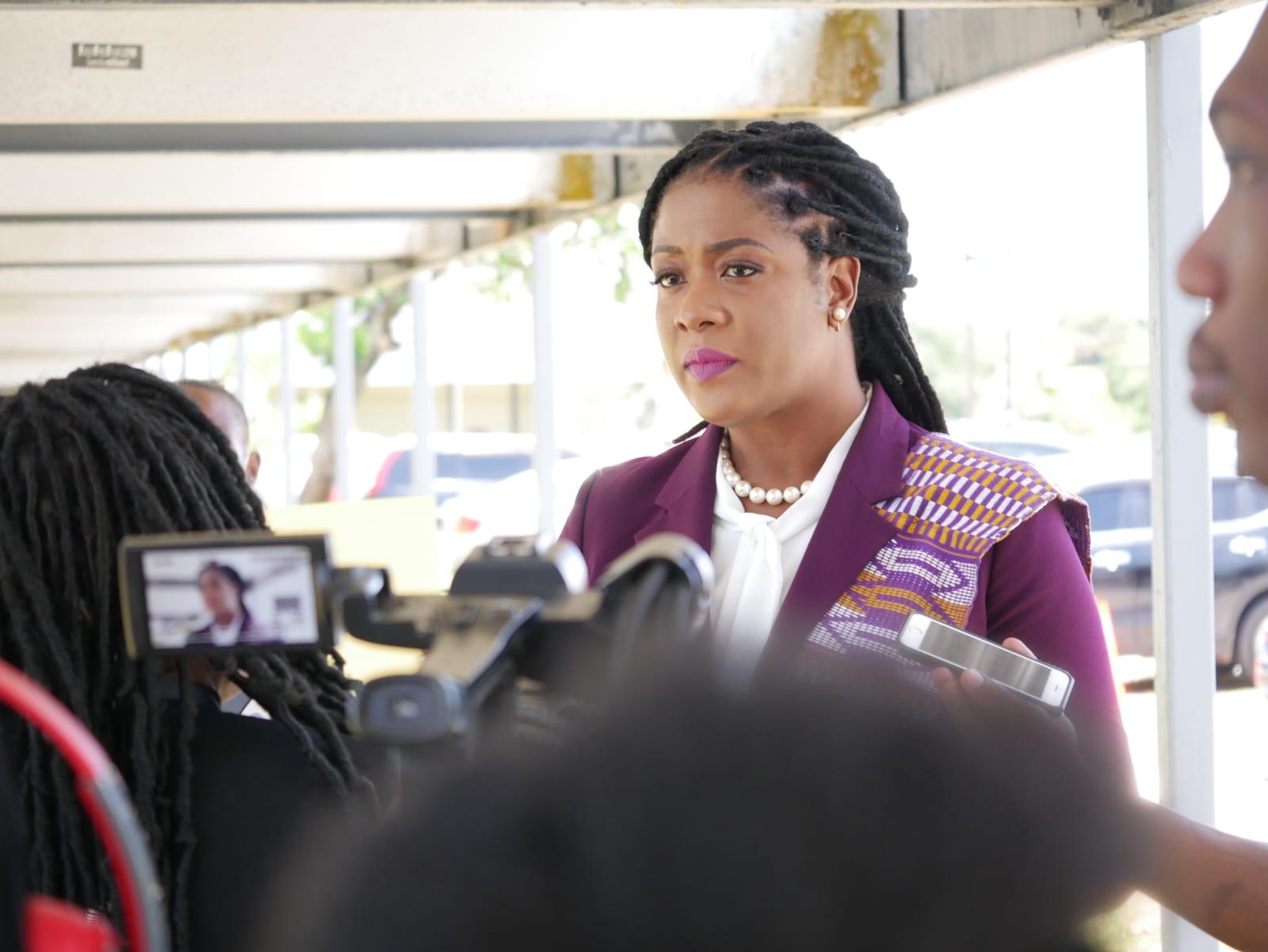The Argyle Joint Declaration, a result of the recent meeting between Guyana and Venezuela Presidents, Irfaan Ali and Nicolas Maduro, has elicited a critical response from Guyana’s shadow foreign minister and Member of Parliament (MP), Amanza Walton-Desir.
The Declaration’s commitment to no military action is positively noted. “I know that Guyanese were very concerned, given the fact that we do not have a large military, that any such, you know, things going into any such arena could have dire consequences for us. The de-escalation, I’m happy to see that there’s a pledge to maintain peace,” Walton-Desir stated.
However, she expressed concern about clause 9 of the declaration, which states, “Both States agreed to meet again in Brazil, within the next three months, or at another agreed time, to consider any matter with implications for the territory in dispute…”
The official believes this clause compromises Guyana’s position by acknowledging a ‘territory in dispute’.
“This is far too wide and allows too much latitude for interpretations that could go against Guyana’s interests,” she stated.
As far as Guyana has been concerned, she explained, there was never a ‘territory in dispute’, as the 1899 Arbitral Award granted the territory to Guyana. She argued that this phrasing is detrimental to Guyana, as it opens up possibilities for interpretations that could harm the country’s interests. For example, routine government actions such as granting a mining license in Essequibo could be interpreted as having implications for this ‘territory in dispute,’ potentially leading to unnecessary diplomatic confrontations or Guyana having to consult with Venezuela on the development of the resources of the Essequibo territory.
During a discussion on an online show hosted by fellow MP Sherod Duncan, Walton-Desir expressed her relief at the agreement’s undertaking to avoid military action and the commitment to peace. However, she questioned the need for Guyana, a non-aggressor, to make such a commitment. She pointed out that the declaration lacked reference to the recent International Court of Justice (ICJ) decision in the provisional measures, which she believed should have been included to assert Guyana’s rights and sovereignty over Essequibo.
The ICJ recently issued measures which, critically, render it illegal for Venezuela to attempt to modify Guyana’s control of the Essequibo region, pending the outcome of the substantive case concerning the question of the validity of the 1899 Arbitral Award.
Of the ICJ, the declaration only states “Noted Guyana’s assertion that it is committed to the process and procedures of the International Court of Justice for the resolution of the border controversy. Noted Venezuela’s assertion of its lack of consent and lack of recognition of the International Court of Justice and its jurisdiction in the border controversy.”
The Argyle Declaration resulted from a meeting facilitated by Dr. Ralph Gonsalves, Pro-Tempore President of the Community of Latin American and Caribbean States (CELAC), and attended by leaders from the Caribbean and Latin American regions. The agreement aims to maintain peace in the region, following several measures by the Venezuelan government which caused concern that the country would invade Guyana.




